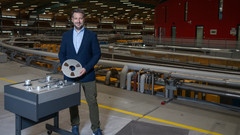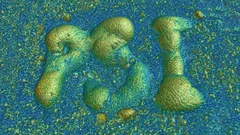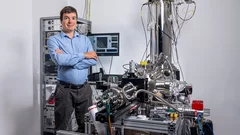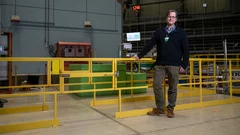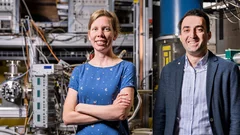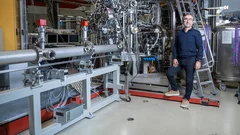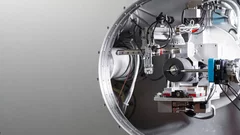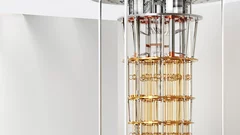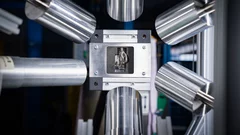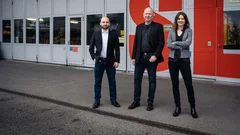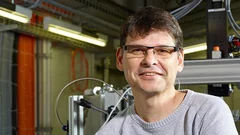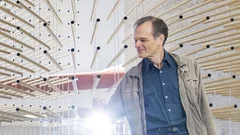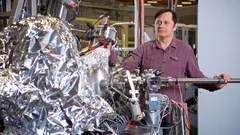Future Technologies
The manifold characteristics of materials are determined by what type of atoms they are made of, how these atoms are arranged, and how they move. In the research area Future Technologies, scientists at the Paul Scherrer Institute are trying to clarify this link between the internal structure and the observable properties of different materials. They want to use this knowledge as fundamental principles for new applications – whether in medicine, information technology or energy generation and storage – or to explore innovative manufacturing processes for industry.
Find out more at: Future Technologies
Switzerland Innovation Park Innovaare celebrates opening
After four years of construction, a modern innovation park with 23,000 m2 of clean rooms, laboratories, precision workshops, offices and meeting rooms has been created next to Paul Scherrer Institute PSI in Villigen (AG).
Fundamentally different
Artificial intelligence is helping to evaluate an unimaginably vast amounts of data efficiently and exploit the facilities’ full potential for research.
Rescuing music with X-rays
SLS plays the King of the Blues – B.B. King! In collaboration with the Montreux Jazz Digital Project, historic audio tapes are being digitised at PSI.
A potential shortcut
Today, machine learning and artificial intelligence are part of the toolkit for most researchers at PSI. In many cases these methods are fundamentally transforming the way we do science.
3D insights into an innovative manufacturing process
3D printing for creating complex shapes
“Molecular chains could be useful for the electronics of the future”
Christian Wäckerlin talks about fundamental research into novel nanowires and their potential applications.
Jupiter mission to explore conditions conducive to life
Ganymede, Callisto and Europa: Jupiter’s icy moons are the destination of the upcoming ESA mission. On board: a high-tech detector developed by PSI.
High-tech company VDL ETG: PSI’s new neighbour
The Dutch company VDL ETG has signed a rental agreement with Park Innovaare.
Swiss PIC to support Swiss photonics industry
The technology transfer centre Swiss PIC will be located in the Park Innovaare.
Further optimising car brakes
Research scientists at PSI and ANAXAM use neutrons to look inside brake callipers and identify potential ways of reducing CO2 emissions.
3.1 million in funding for new research projects at PSI
The PSI scientists Zurab Guguchia and Kirsten Schnorr are to receive grants totalling CHF 3.1 million from the Swiss National Science Foundation for ground-breaking projects.
New materials for the computer of the future
Researchers are identifying and studying material compounds whose unique properties could lead to the development of novel types of chip.
10 Years anniversary of Excelsus
The PSI spin-off "Excelsus Structural Solutions" performs measurements at the SLS on behalf of customers.
Solving the unsolvable
PSI and ETH Zurich have founded the Quantum Computing Hub, where top researchers work together on concepts for quantum computers.
Hercules and batteries, X-rayed
With muons, PSI researchers can examine objects non-destructively. This helps in archaeology and battery development.
Novel X-ray lens facilitates glimpse into the nanoworld
PSI develops a revolutionary achromatic lens for X-rays.
Simulant material could aid in Fukushima cleanup
A new simulation of the most dangerous radioactive debris from the Fukushima nuclear power plant will help with clean-up efforts.
Towards compact quantum computers, thanks to topology
In pursuit of particularly stable quantum bits, researchers have closely examined the electron distribution in two semiconductors.
Millions in funding for brain and quantum research
The European Research Council approves PSI projects for the development of a quantum computer and brain research worth about 5 million euros.
Semiconductors reach the quantum world
Boosted with superconductivity: Semiconductor technology can get a new twist by exploiting quantum effects in superconductors.


